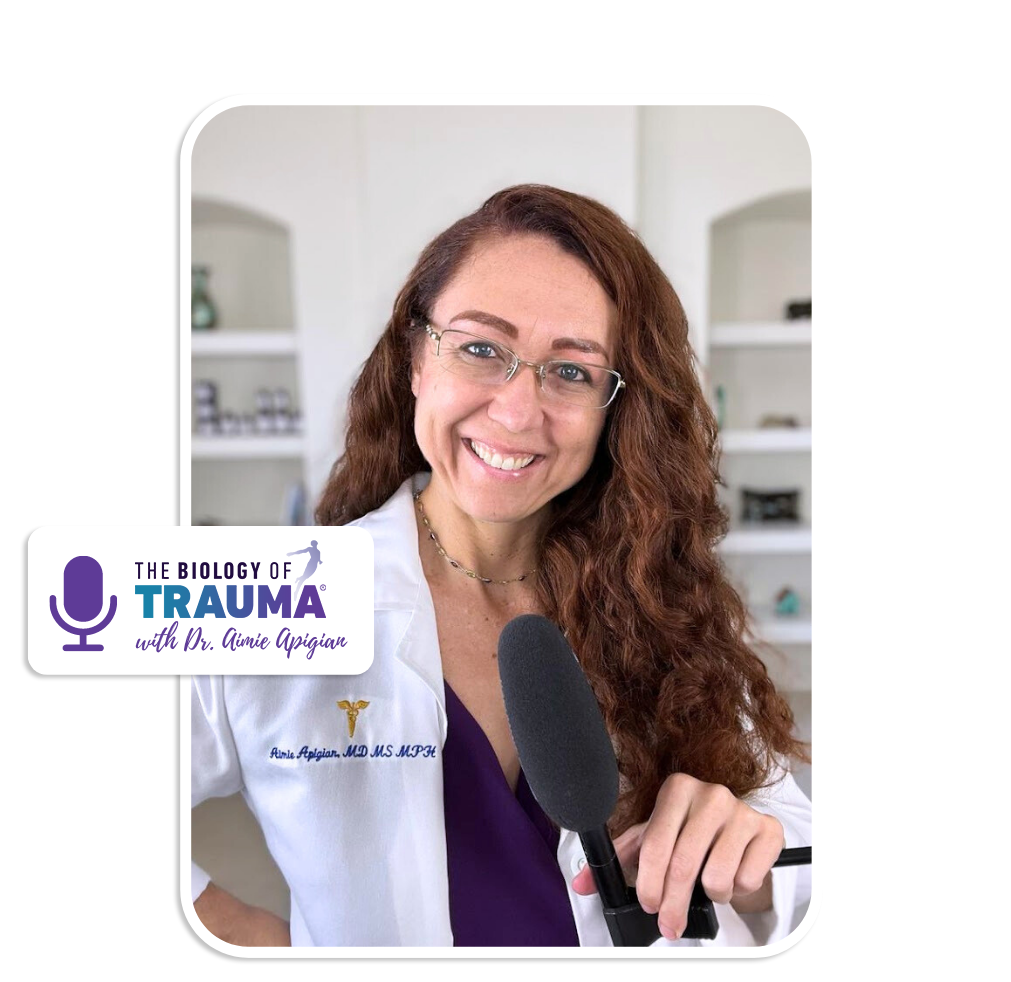
Biology of Trauma® Podcast
With Dr. Aimie Apigian
Episode35: When trauma Has Made It Unsafe To Feel Safe, What Do We Do? Neuroception, Vagal Efficiency And Neuroplasticity - How Does Polyvagal Lens Influence Trauma Work?
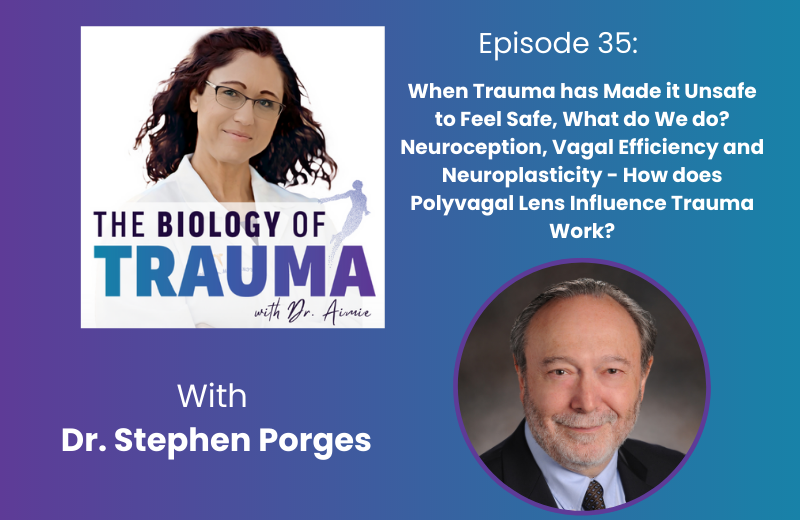
"..the first step is to kind of witness your body and where you're aware of these physiological shifts. And then the second phase is really the narrative you develop about those physiological responses. If you see it through a polyvagal lens, you see the reactions as trying to protect you.."
Show Notes:
Polyvagal Theory is an optimistic viewpoint and it means that it acknowledges that many people have difficulties feeling safe, but it doesn’t mean that they are destined to feel that way forever.” Last week’s episode (Episode 34) was Part 1 in my discussion with Dr. Steve Porges, founding director of the Traumatic Stress Research Consortium and professor of psychiatry at the University of North Carolina, focusing on what the polyvagal lens says about attachment, freeze, and functional diseases (like fibromyalgia, chronic fatigue, irritable bowel syndrome, and even COVID) and the first step – becoming a witness to our body and safety.
In Part 2, we will pick up the last minute of the previous episode and then go into five specific things that show the influence the polyvagal lens has on trauma work and what we can do when trauma has made it unsafe to feel safe.
Key Takeaways:
- [06:43] Defining Neuroception and how it is different than perception
- [10:00] Findings from preterm babies in the NICU and what we learned about safety and survival
- [11:19] The relationship challenges of those born preterm
- [13:19] How understanding state regulation is more important than understanding neuroplasticity
- [21:22] Interesting tool for the nervous system – an oscillating tilt table that Dr. Porges has used
Interested to learn more about what I do? Click here.
Helpful Links:
Youtube:
What to do when you are in freeze
Stress Can be a Coping Mechanism we use to Cover up the Freeze Response
The 2 Things Your Body Needs To Come Out Of The Freeze
Articles or Blogs on Freeze:
The Beginning of a Trauma Body
Answers to Your Questions on Healing Your Body from Trauma
Connect with me on social media
Products I recommend from this episode
Magnesium Clam – If you want your body to be calm then this supplement will help you
Comment Etiquette:
I want to hear from you! I would love to hear your thoughts on this episode and let’s make them constructive! A few requests: Please refrain from including URLs and using yours or someone else’s business name to steer clear of spam. Please do use your personal name or initials.
Let’s have a constructive, positive and productive discussion!
Drop your thoughts below about the episode! I want to hear from you.
Connect with me on social media
Foundational Journey
You. Calm. Alive.
Be safely guided step-by-step through the essential process for addressing stored trauma in your body.
Disclaimer:
By listening to this podcast, you agree not to use this podcast as medical advice to treat any medical condition in either yourself or others. Consult your own physician for any medical issues that you may be having. This entire disclaimer also applies to any guests or contributors to the podcast. Under no circumstances shall Trauma Healing Accelerated, any guests or contributors to The Biology of Trauma® podcast, or any employees, associates, or affiliates of Trauma Healing Accelerated be responsible for damages arising from the use of the podcast.
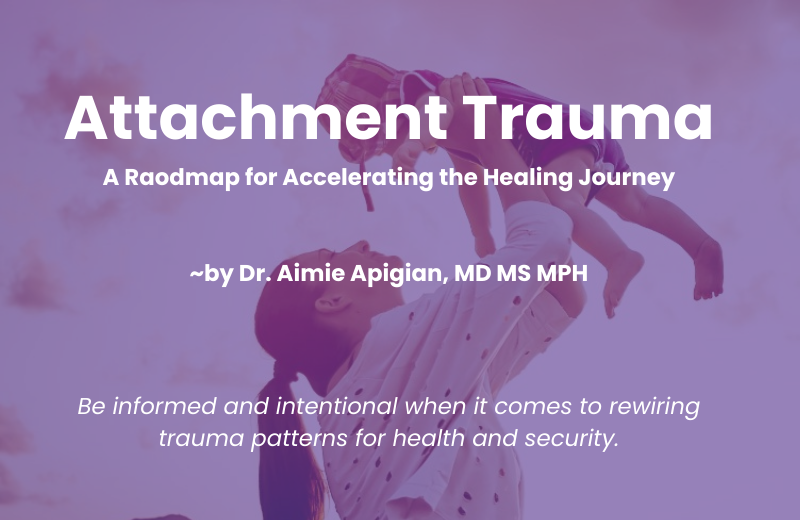

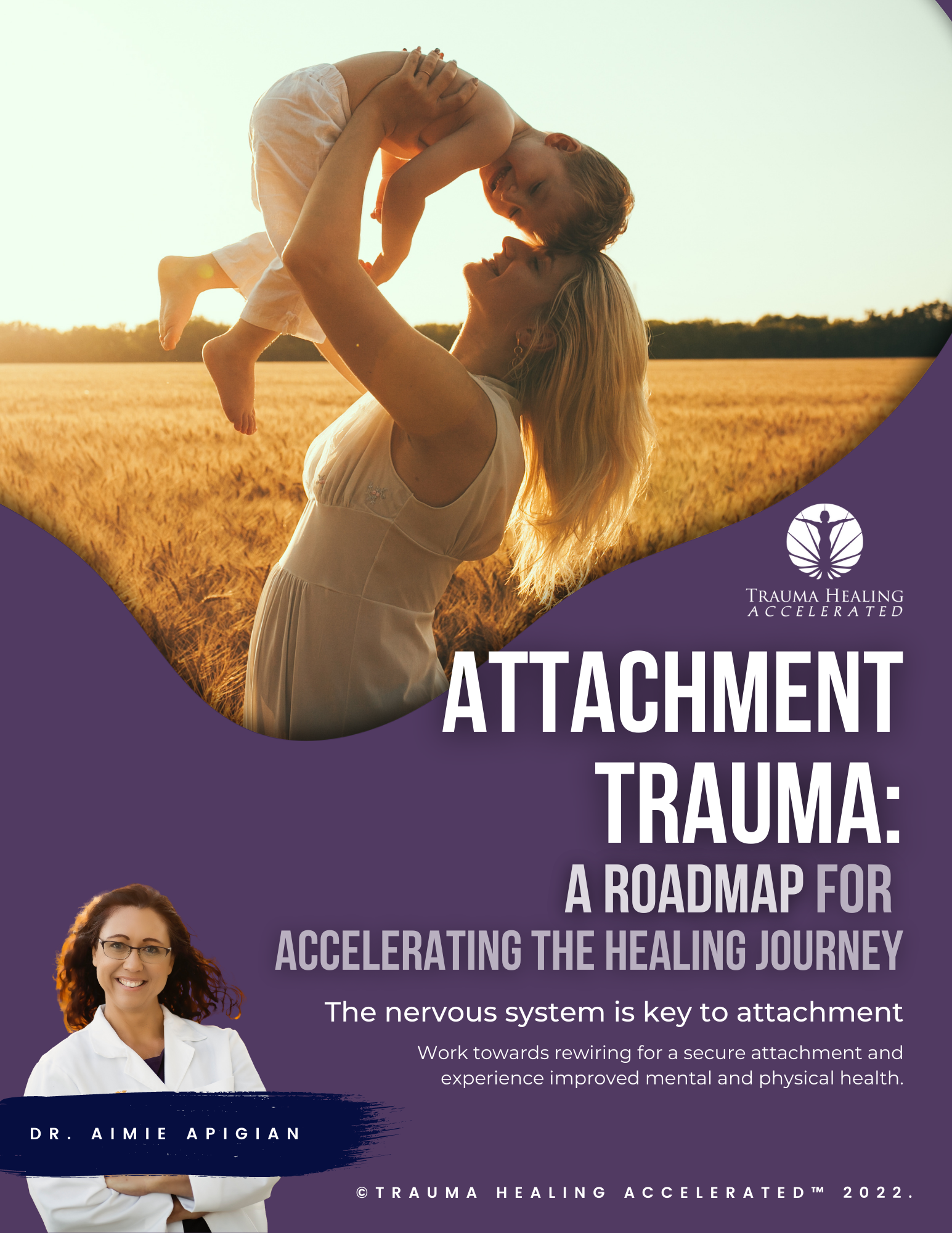

One Response
The idea of being still not feeling safe for some and needing to rock is interesting. I wonder if that is why those with dementia will rock during the sun downer’s time frame? The body is desperately trying to feel safe?